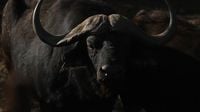On August 3, 2025, the South African bush became the scene of a tragic and unexpected encounter between man and beast. Asher Watkins, a prominent real estate magnate from Texas and an avid trophy hunter, lost his life while tracking a Cape buffalo during a safari expedition. The incident, described by the organizing company as a "sudden and unprovoked attack," has reverberated far beyond the savannas of South Africa, igniting fresh debates over the ethics and dangers of big game hunting.
Watkins, who led the Watkins Ranch Group and managed multimillion-dollar properties across Texas, Colorado, and Arkansas, was participating in a classic safari-style hunt organized by Coenraad Vermaak Safaris. According to CNN, this type of hunting involves traversing vast game areas in open-top trucks, spotting animals from a distance, and then following them on foot to close in for the shot. On that fateful Sunday, Watkins was accompanied by a professional hunter and a tracker—standard practice for such expeditions, which are often marketed as both an adventure and a test of skill.
But the thrill of the chase can swiftly turn perilous, especially when the quarry is the Cape buffalo. Known among hunters as one of Africa’s most formidable and unpredictable animals, the Cape buffalo has earned a reputation for being not only elusive but also exceptionally dangerous. Coenraad Vermaak Safaris, the company that organized Watkins’ hunt, put it bluntly in a statement: "Responsible for several deaths and many injuries to hunters each year, the buffalo is regarded as the most dangerous animal to pursue in Africa, let alone the world." The company further remarked, "No other animal has a more fearsome reputation than a Cape buffalo!"
Details about the exact circumstances of Watkins' death remain closely guarded. Hans Vermaak, leader of Coenraad Vermaak Safaris, stated, "Asher was fatally injured in a sudden and unprovoked attack by an unwounded buffalo he was tracking together with one of our professional hunters and one of our trackers." Out of respect for the family and those present, Vermaak added, "We will not be sharing further details." The company described Watkins and his family as "long-standing friends and part of the CVS family," underscoring the close personal ties often formed between safari operators and their clients.
The news of Watkins’ death sent shockwaves through both the hunting community and the broader public. For those familiar with the risks of big game hunting, the incident serves as a grim reminder of the dangers inherent in tracking Africa’s so-called “Big Five.” Safari groups and wildlife experts have long cautioned that buffaloes, in particular, are not to be underestimated. According to CNN, they are widely regarded as the most dangerous animals to trail in Africa—a sentiment echoed by countless guides and hunters who have faced close calls over the years.
But the story didn’t end in the bush. As news of the tragedy spread, it sparked a flurry of discussion online, particularly among animal rights activists and critics of trophy hunting. Organizations like PETA seized on the incident to highlight their opposition to the practice, posting on Instagram: "Asher Watkins went on a luxury hunting trip in South Africa when he stalked a Cape buffalo. The terrified buffalo was cornered and retaliated. Animals aren't trophies or wall decorations. Trophy hunting must end!" The post quickly gained traction, with one comment—"cheers to the buffalo"—garnering thousands of likes, reflecting a groundswell of public sentiment against trophy hunting.
This reaction is hardly surprising. The ethics of trophy hunting have long been a lightning rod for debate, pitting conservation arguments against animal welfare concerns. Proponents of regulated hunting often argue that the substantial fees paid by hunters contribute to wildlife conservation and support local communities. Detractors, however, see the practice as inherently cruel and outdated, arguing that it commodifies sentient beings and undermines broader conservation goals. Watkins’ death, coming as it did at the hands (or rather, horns) of the very animal he sought to kill, has only intensified these arguments.
For those who knew Watkins personally, however, the focus remains on the man behind the headlines. Described in his company biography as a lifelong outdoorsman who enjoyed fishing and hunting, Watkins was more than just a businessman or a hunter—he was a father, a son, and a brother. His surviving relatives include his mother Gwen, daughter Savannah, brother Amon, and stepfather Tony, all of whom are now grappling with the sudden loss.
Coenraad Vermaak Safaris expressed deep sympathy for the family and staff affected by the tragedy. "The family and our team members who were present at the time are understandably shaken," Hans Vermaak said in his statement. The company’s decision to withhold further details is, in part, a gesture of respect for the privacy and grief of those involved—a rare pause in an industry that often trades in stories of conquest and adventure.
The incident also raises questions about the future of safari-style hunting in Africa. With mounting scrutiny from the global public and increased pressure from animal rights groups, the industry faces a crossroads. Will stories like Watkins’ serve as cautionary tales, prompting tighter regulations or even outright bans? Or will they reinforce the mystique and allure of the hunt for those who see it as the ultimate test of human skill and bravery?
Meanwhile, the Cape buffalo continues to roam the grasslands, its reputation as Africa’s most dangerous game animal only further cemented by this latest encounter. Hunters and guides alike will no doubt recount the story of Asher Watkins for years to come—both as a warning and as a testament to the unpredictable, sometimes unforgiving, relationship between humans and wildlife.
In the end, the tragedy in South Africa is a stark reminder of the risks that come with seeking adventure in the wild, and of the enduring, often fraught, connection between people and the animals they pursue.




